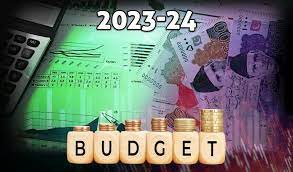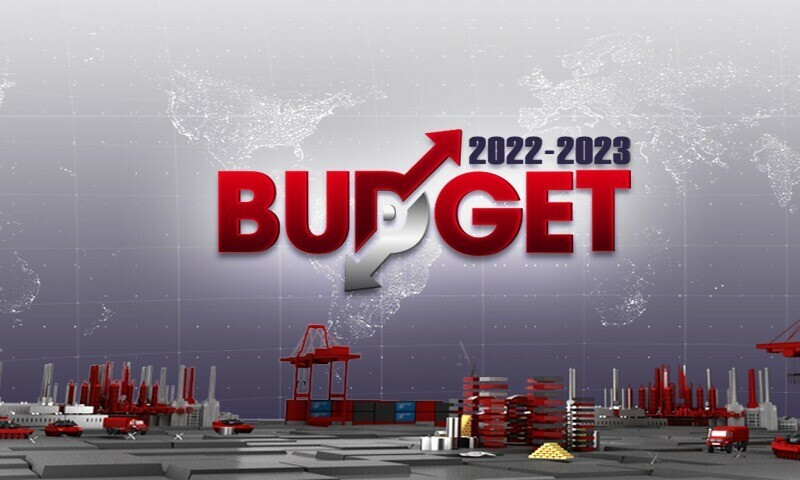What It Means for Government Employees and the Public
The Government of Pakistan has announced its Federal Budget for the fiscal year 2025–26, with a total volume of Rs 17,600 billion. The budget centers around economic management, inflation control, and limited financial relief for salaried individuals. It includes significant developments regarding salaries, pensions, taxation, energy, real estate, and reforms aimed at non-filers.
Here’s a breakdown of the main announcements and their implications.
Pay Raise for Government Employees

The Pakistan Federal Budget 2025–26 has officially been announced and presented with a total outlay of Rs 17,600 billion. The federal budget 2025-26 announcement date was followed by a detailed presentation in the National Assembly. The government has emphasized economic reforms, modest relief for the salaried class, and new strategies to enhance tax compliance. In a high-level meeting led by the Prime Minister, the government approved a 10% salary increase for federal employees and a 7% pension raise for retirees. These proposals await the final nod from the federal cabinet.
Federal Budget 2025-26 Presentation Date and Highlights
The federal budget 2025-26 presentation date was set for June 10, 2025, during which the Finance Minister shared detailed proposals for fiscal management, tax policy, and public sector compensation. The budget outlines plans to balance inflation control with development spending and defense allocations.
Key Suggestions Discussed:
- A 30% disparity allowance for staff in Grades 1–16
- A 10% salary increment based on inflation adjustment for all government personnel
- Integration of one previous ad hoc relief into the basic salary structure
- An independent proposal for a 15% raise for officers in Grades 17–22
Pension Reform Delay
Although a contributory pension plan was to be introduced for armed forces personnel from July 1, its rollout is expected to be postponed due to structural delays. Armed forces are likely to remain temporarily exempt.
Tax Cuts for Salaried Individuals
To ease the burden on salaried taxpayers, the Finance Minister announced reductions in various tax brackets:
| Annual Salary (PKR) | Old Rate | Revised Rate |
|---|---|---|
| 600,000 – 1,200,000 | 5% | 1% |
| Up to 2,200,000 | 15% | 11% |
| 2,200,000 – 3,200,000 | 25% | 23% |
For example, someone earning Rs 1.2 million annually will now pay only Rs 6,000 instead of Rs 30,000 in income tax.
Higher Taxes on Savings Income
While salary earners receive some tax relief, individuals earning interest from bank deposits will now be taxed at a higher rate:
- Interest income tax has risen from 15% to 20%
- This change will not affect small savers or holders of National Savings Certificates
Stricter Measures Against Non-Filers
To expand the tax base, the government has introduced tighter controls on financial transactions:
- Only tax return filers will be permitted to buy property, vehicles, stocks, or mutual funds
- Bank cash withdrawal tax for non-filers has increased from 0.6% to 1%
- People must declare sources of income (such as gifts, loans, or inheritance) via the FBR portal
- Compliant taxpayers will benefit from smoother financial processes
Carbon Levy and Petroleum Pricing Changes
To promote cleaner energy consumption, a carbon levy has been proposed:
- Rs 2.5 per liter levy on petrol, diesel, and furnace oil
- To be increased to Rs 5 per liter in the next fiscal year
Vehicle Sales Tax Hike and Expected Price Surge
A rise in the sales tax on vehicles will result in higher car prices:
- Hybrid vehicles up to 1800cc will now be taxed at 18%, up from 8.5%
- Cars under 850cc, such as the Suzuki Alto, will also see an increase from 12.5% to 18%
- Estimated price hike: Rs 170,000
Real Estate Sector: Incentives for Home Buyers
The budget introduces measures to make home buying and construction easier for middle-income groups:
- A new low-interest housing loan scheme will be launched soon
- Tax benefits on:
- Houses up to 10 marlas
- Flats up to 2,000 sq. ft.
- Withholding tax on property purchases reduced:
- From 4% to 2.5%
- From 3.5% to 2%
- From 3% to 1.5%
- Stamp duty in Islamabad proposed to drop from 4% to 1%
- The federal excise duty (up to 7%) on the transfer of property has been abolished
Solar Panel Import Tax Increased
To create a level playing field between imported and locally produced solar panels:
- Sales tax on imported solar panels increased to 18%, from the earlier 17%
The government claims it is working on long-term solutions for reducing electricity costs, including:
- Discontinuation of costly power plants with a combined capacity of 9,000 MW
- Estimated savings of over Rs 4 trillion
Final Thoughts: Measured Relief with a Focus on Reforms
The Federal Budget 2025–26 provides targeted financial relief for government employees and introduces incentives in the housing sector, while also increasing taxes in some areas such as vehicle purchases and bank savings income. Compared to the federal budget 2024-25, the current budget places greater emphasis on tax enforcement and economic restructuring.
The new budget represents a blend of economic stabilization and structural reforms, with the clear aim of widening the tax net, supporting cleaner energy, and making housing more accessible. However, the everyday consumer may still feel the pinch due to price increases and indirect taxes.





